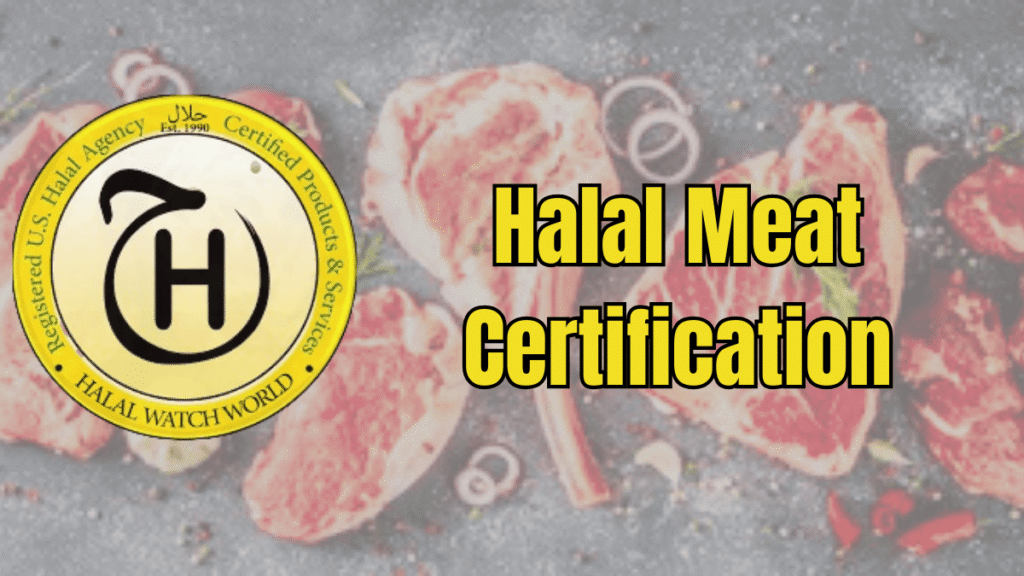The global demand for Halal products continues to rise, driven by ethical consumption and religious observance. For the meat industry, Halal Certification for Meat is no longer optional—it’s a critical component of market access and consumer trust. In 2025, certification standards are evolving, reflecting stricter regulations and heightened consumer scrutiny. This guide explains the process, requirements, and key players in Halal meat certification.
What Makes Meat Halal Certified?
What makes meat halal certified hinges on adherence to Islamic dietary laws. Key principles include:
- Slaughter Method: Animals must be slaughtered while alive, with a sharp blade used to sever the jugular vein, carotid artery, and windpipe in one motion. The animal must not witness the slaughter of another.
- Prohibited Animals: Pork, blood, and animals dead before slaughter are forbidden. Carnivorous animals, animals with fangs, and those that consume carrion are also excluded.
- Handling: Meat must be handled separately from non-Halal products to prevent cross-contamination.
- Intention: The slaughter must be done in the name of God (Allah).
Certification confirms these steps were followed under supervised conditions.
Halal Meat Certification Requirements
Meeting halal meat certification requirements involves rigorous documentation and oversight. Key steps include:
- Animal Sourcing: Proof that animals are sourced from approved farms or suppliers.
- Slaughterhouse Compliance: The facility must use Halal-compliant equipment and procedures. A certified Halal supervisor must be present during slaughter.
- Documentation: Detailed records of the slaughter process, including dates, animal IDs, and supervisor certifications.
- Facility Hygiene: Regular audits to ensure sanitation and separation of Halal and non-Halal products.
- Labeling: Clear Halal certification logos and statements on packaging.
In 2025, digital tracking (e.g., blockchain) is increasingly used to verify supply chain transparency.
The Role of a Halal Certification Agency
A Halal Certification Agency acts as an independent third-party auditor. Its responsibilities include:
- Auditing: Inspecting slaughterhouses, processing facilities, and supply chains.
- Standard Development: Creating and updating Halal standards aligned with global Islamic authorities.
- Certification: Issuing valid Halal certificates upon successful audits.
- Re-auditing: Conducting periodic checks to maintain certification.
Choosing a reputable agency ensures credibility. Look for organizations recognized by global Halal bodies like JAKIM (Malaysia) or MUIS (Singapore).
Halal Certification in the USA
The halal certification in usa market is booming, driven by a diverse Muslim population and growing interest in ethical meat. Key trends in 2025:
- Diverse Certifiers: Agencies like the Islamic Food and Nutrition Council of America (IFANCA) and the American Halal Foundation are prominent.
- State Variations: Some states have specific Halal regulations, especially for school meals or public institutions.
- Consumer Demand: 75% of U.S. consumers seek Halal options, even if not Muslim, due to perceived quality and ethics.
- Import Focus: U.S. importers of international meat must ensure dual certification (e.g., Halal and USDA).
Halal Certification Services for Meat Export
For businesses exporting meat, halal certification services for meat export are essential for entering international markets. Considerations include:
- Destination Requirements: Each country has unique Halal standards. For example, the EU requires specific slaughter documentation, while Gulf nations may demand certification from recognized local bodies.
- Logistics: Certified suppliers must maintain Halal integrity during shipping (e.g., no cross-loading with non-Halal goods).
- Cost: Export certification often involves higher fees due to additional audits and documentation.
- Partnerships: Work with export-focused Halal agencies that understand international trade laws.
In 2025, digital certificates and QR codes linked to audit reports are streamlining export compliance.
Choosing a Halal Certification Company
Selecting the right halal certification company impacts your brand’s reputation. Key factors:
- Accreditation: Ensure the company is accredited by a global Halal authority (e.g., halal.org.uk or the Halal Trust).
- Experience: Prioritize agencies with expertise in your specific meat product (e.g., poultry, beef, or seafood).
- Transparency: Request samples of their certification process and client testimonials.
- Cost: Compare fees, but avoid choosing solely based on price—reputation matters.
- Support: Opt for companies offering ongoing guidance, re-auditing, and market access support.
The Future of Halal Certification
By 2025, Halal certification is becoming more standardized and technology-driven. Trends include:
- AI and Blockchain: Used for real-time supply chain tracking and fraud prevention.
- Sustainability Focus: Certifiers increasingly evaluate environmental practices alongside Halal compliance.
- Global Harmonization: Efforts to align standards across regions to simplify trade.
Conclusion
Halal certification is a non-negotiable for meat businesses targeting global or ethically conscious consumers. By understanding halal meat certification requirements, partnering with a trusted Halal Certification Agency, and leveraging halal certification services for meat export, companies can tap into a $3 trillion Halal economy. In the USA, halal certification standards are evolving to meet modern demands, making it easier for businesses to comply. Choose a reputable halal certification company to ensure your products meet both religious and consumer expectations.
Read more exciting blogs on postscontent.com



